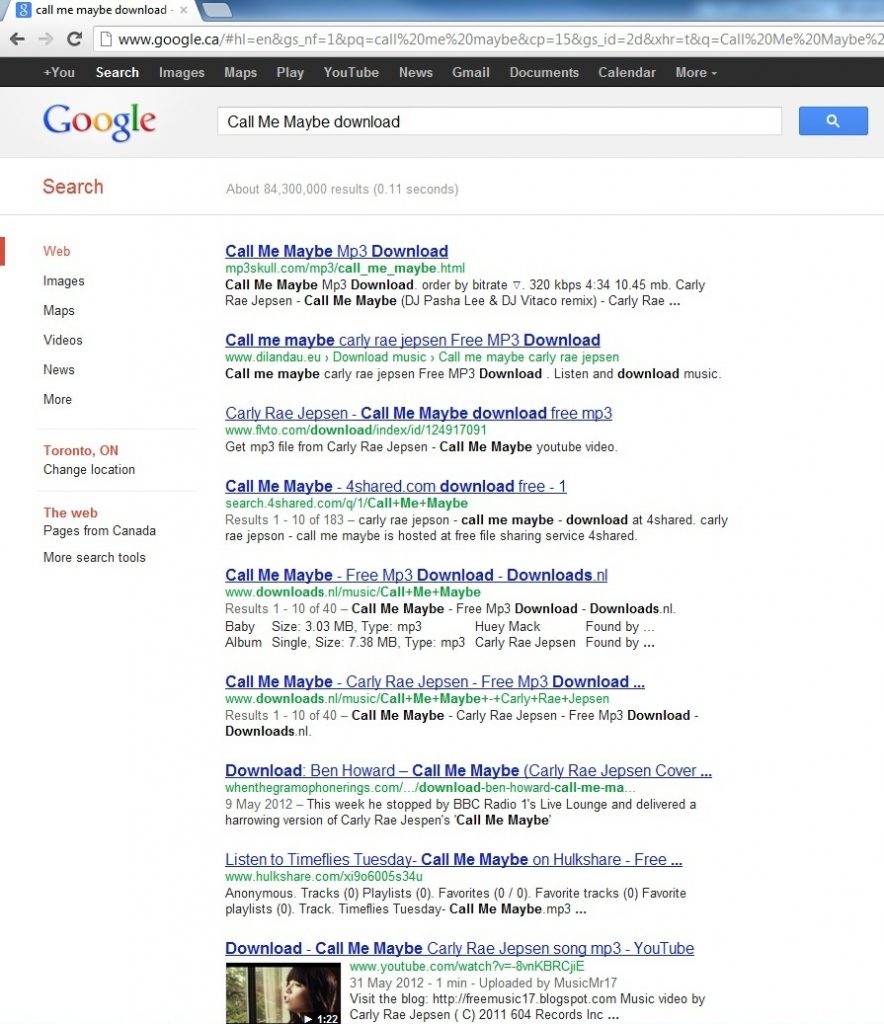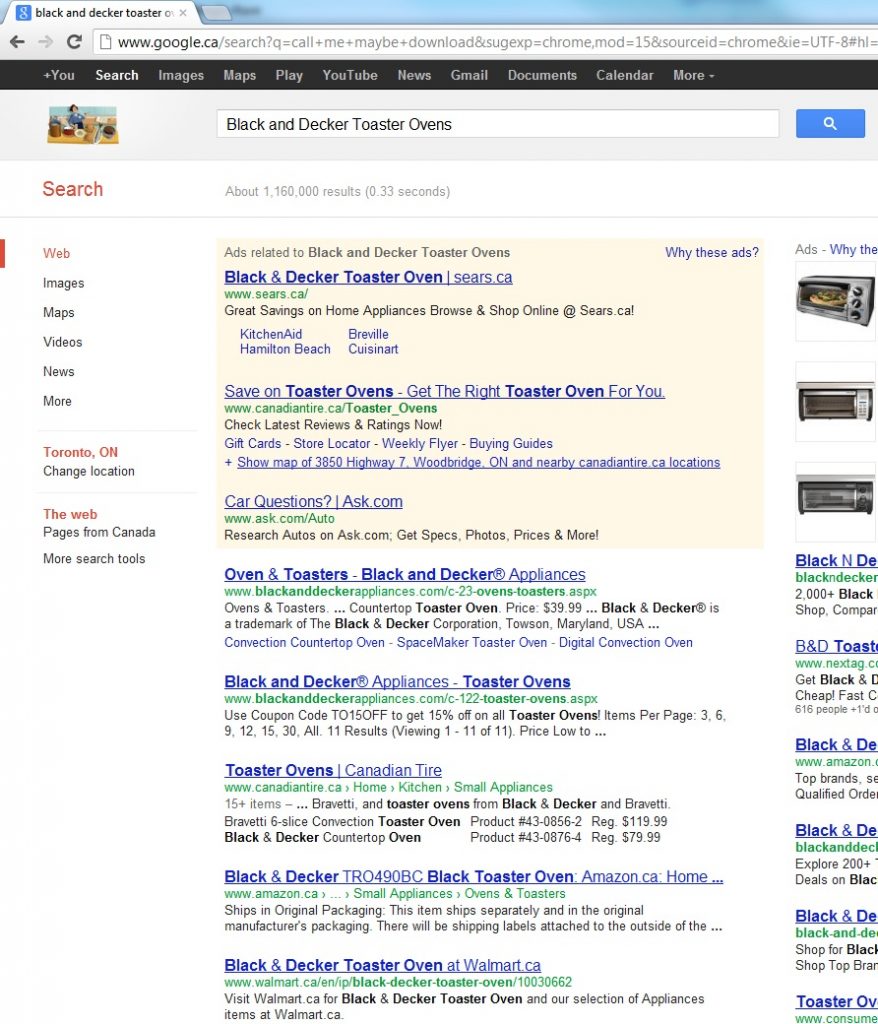 The Rambler is a column by Graham Henderson, President of Music Canada. Graham writes from time to time about developments in the music industry, new trends or just about music! Let’s face it, Graham has been around for a long time and has a lot to ramble on about.
The Rambler is a column by Graham Henderson, President of Music Canada. Graham writes from time to time about developments in the music industry, new trends or just about music! Let’s face it, Graham has been around for a long time and has a lot to ramble on about.
The debate about the effect of piracy on creators can become exceedingly tedious at times. A veritable cottage industry has grown up around it, enriching a few academics who made a killing producing studies that purport to show that piracy has had no adverse effect on the music industry. A good example of this took place right here in Canada.
A few years back bureaucrats in the Department of Industry took it upon themselves to pay for a study that purported to analyze the effect of theft on the market for music. Incorrectly claiming that no studies on this subject were available in Canada (in fact two had been produced), and incorrectly claiming that no suitable, unbiased Canadian researchers were available, the bureaucrats contracted with a little known Danish academic named Birgitte Andersen, who was then employed as a Reader at Birkbeck College in London, England. Why her? Well, the bureaucrats alleged that she was the only unbiased candidate they could find. However a simple Google-based literature review readily revealed a history of anti-corporate, anti-copyright rhetoric.
For example, in a 2005 article titled “The Social and Economic Effects of Copyrights in the Music Industry”, Ms. Andersen characterized copyright as a “weapon” used by “multinationals” to attack creativity:
“Critical law and economics suggest the copyright system can act as a vehicle for the crude expression of commercial power relations and, in the specific case of music, a weapon by multinationals against the creative independence of small countries and producers. (p.132)”
Sigh. Now THAT is hardly what I would call unbiased.
All of which leads me to believe that the bureaucrats at Industry had to know both with whom they were dealing and what they were buying.
In any event, she was paid $24,999 for this study. An amount which conveniently skirted Treasury Board rules requiring a public request for proposals for any contracts for services exceeding $25,. This is a rule designed to protect the Canadian taxpayers from the misuse of their hard earned tax dollars. Additional sums were apparently paid to polling firms and for subsequent analysis.
As was extensively documented by Professor George Barker, Ms. Andersen first produced a study which incredibly concluded that theft of music increased the sales of music. Then, after an avalanche of criticism here, here, and here, she back-slid and revised and rewrote her study, saying there was no effect positive or negative. (Although Industry Canada continues to this day to post the original, abandoned study.) Finally the data she used to reach these dubious and contradictory conclusions was rigorously analyzed by Professor Barker, who showed that it had been either misunderstood or misrepresented in both of the previous studies. Professor Barker found that a full analysis of all the data – including that inappropriately ignored by Andersen — clearly demonstrated that piracy hurts the sale of music.
To which I think the disinterested observer would heave a huge sigh and say…”Well, D’uh!!”
As recently as this week researchers at Carnegie Mellon University published a literature survey calling into question the dubious and counter-intuitive conclusions researched by researchers such as Andersen, writing,
“Our review finds that, when viewed as a whole, the academic literature strongly suggests that piracy harms media sales: the vast majority of academic papers — particularly those published in peer-reviewed academic journals — find evidence of harm from piracy. This conclusion is consistent with reviews of the academic literature by Stan Liebowitz in 2006 and by Felix Oberholzer-Gee and Koleman Strumpf in 2009, but includes more recent studies — and we believe these recent papers make the case of harm from piracy even stronger than what the literature suggested just a few years ago.”
However, as Barry Sookman showed, in the meantime anti-creator activists avidly utilized the study to attempt to stave off much needed copyright reform. Despite a clear statement on the Department of Industry’s website that this was NOT an Industry Canada study, professors such as Michael Geist repeatedly referred to it as an Industry Canada study – I assume to give it heft and gravitas. How disappointing.
Meanwhile, reality bites. In an interview with the BBC, Omniphone’s CEO attributed his company’s recent swing to profitability to crackdowns on piracy sites:
“Mr. Hughes told the BBC that his company had invested about $60m (£37.5m) in its platform over the past half decade to get to this point.
He added that recent high profile efforts to crack down on file-sharing sites – including internet service providers (ISPs) blocking access to The Pirate Bay, and the closure of the Demonoid BitTorrent tracker – had helped drive up earnings as users had been encouraged to opt for legal streaming alternatives.
“A corner has been turned – there is no doubt,” he said.
“I don’t think the growth that we’re seeing now, or that’s projected in the future, could happen if we didn’t turn the corner. The music industry was bought to its knees by piracy almost simply because the files were small so they were the first [type of media] to go.
“Therefore the music industry adapted first, it tried to fix itself first, and I think it has made big strides.”
In addition to the erroneous studies feeding the idea that piracy was at worst benign, the anti-creator lobby became extremely adept in crafting straw men which they deployed like a veritable legion of doom. Here is a terrific recent example: the now ubiquitous Tim Berners-Lee opining yet again on the merits of an unregulated internet:
“There’s been this assumption that the web is only there for stealing music and that the most important industry is the media industry. But I think it’s reasonable that I should pay for music.”
The reporter noted that this was said with a mocking tone. Who EVER said that the most important industry was the media industry? Who EVER said that the web was only there for stealing music? Are these rhetorical exaggerations designed to make a point? I doubt it. This is a straw man built to be conveniently dispatched with a supercilious and knowing sneer.. . At least he concedes that it is “reasonable” that he should pay for the fruit of the musician’s labour. Thanks for the magnanimity, Tim.
The creation of false information paired with argumentative techniques that would not pass muster in a high school philosophy class have been a blemish on the debate about what is right and wrong in the digital environment for years. But as Omniphone so eloquently demonstrates, while the situation remains dire, “a corner has been turned”. And it has been turned not only because brilliant and innovative new services have been introduced, but also because the market place has been afforded a degree of protection from parasites like The Pirate Bay and Demonoid and now more than ever, thanks to recent legal changes in Canada enacted by our Conservative Government, IsoHunt.
As my good friend Neil Turkewitz wrote to me the other day:
“With the expansion of services like Spotify, there has been a lot of talk about how innovative business models can make inroads into piracy. That’s a good and partially true narrative, but it overlooks that it is a two way street, and that enforcement against unauthorized services is itself a foundational component of allowing services like Spotify to take hold, and that enhancing responsibility in the internet environment is a critical factor in nourishing new services, and allowing them to gain a foothold in the marketplace. And gaining a foothold in the legitimate marketplace is only the starting point. Piracy has driven the perceived value of recorded music to zero, or near zero, and advertiser-supporter services can hardly sustain the vitality of the music community. Enhancing the transition to paid services is going to require much more success in marginalizing unauthorized services.”
And unless and until intermediaries like Google continue to do more than simply paying lip service to the problem (see, for example, the recent decision to omit The Pirate Bay from autocomplete), we will wallow in the slough of despond.
Graham Henderson is the President of Music Canada. He also writes on an eclectic range of topics on his personal blog at www.grahamhenderson.ca.



Music Canada